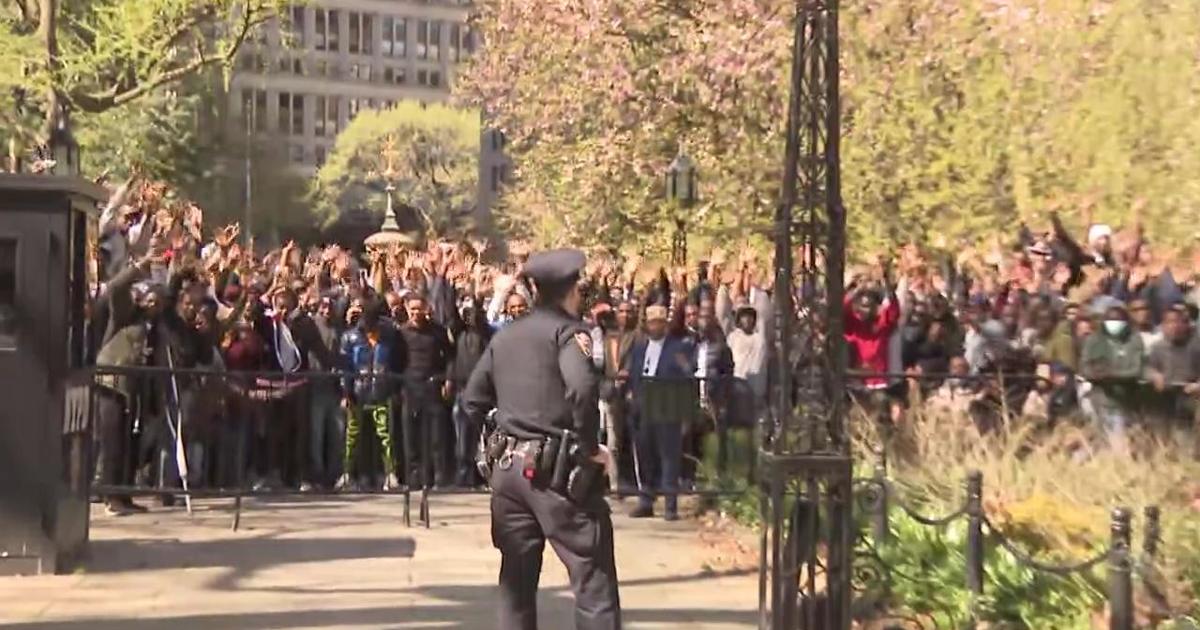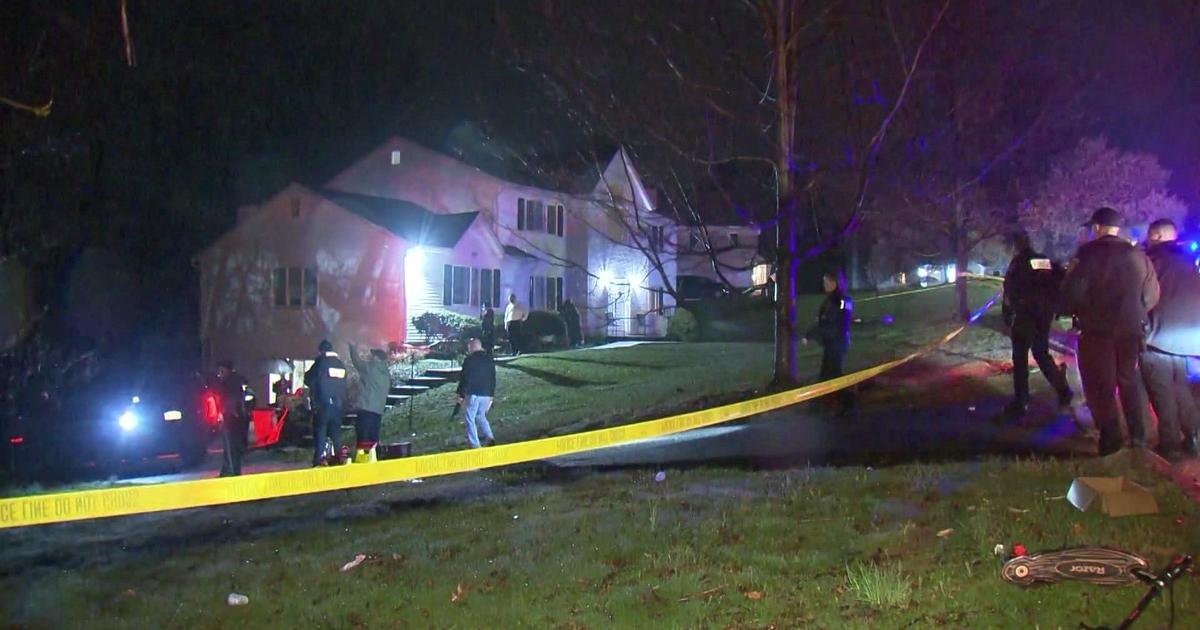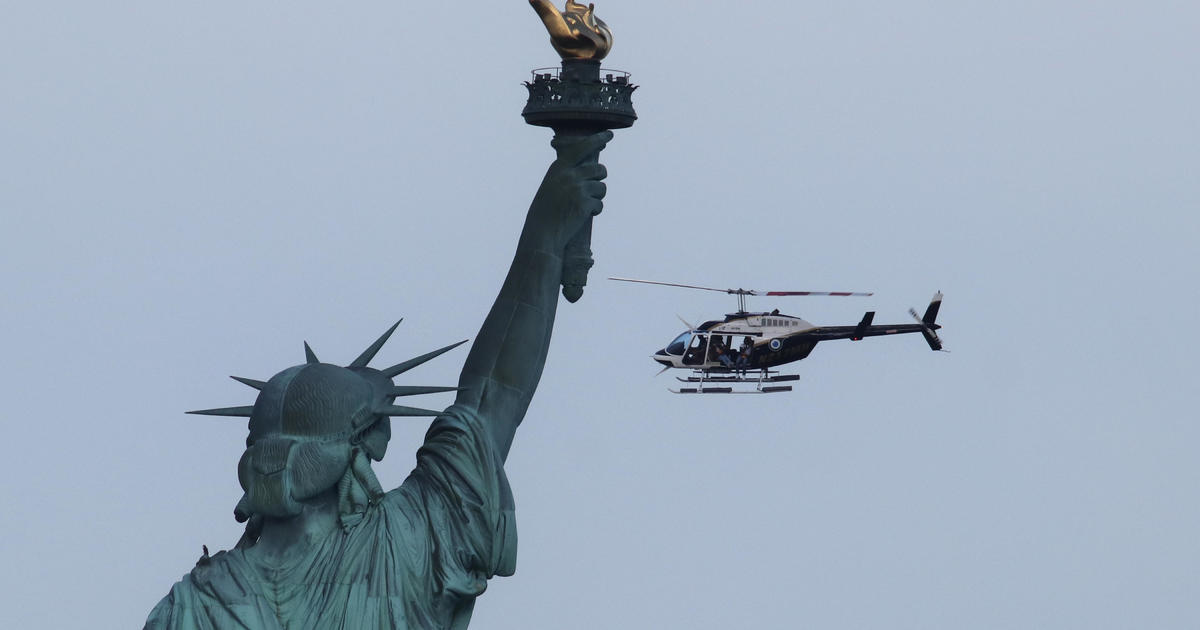Matteo Lane: 'The Pressure of New York Comedy Is Greater'
Comedian Matteo Lane knows the pressure to write and perform well is greater in New York City than anywhere else in the country. The Chicago native cut his teeth as a young comic in the Windy City where he transformed his life as a storyboard artist creating illustrations for TV commercials into a career comedy. The New York resident hosts his own comedy show on Snapchat called "Ghost Hunt," a show about modern dating in the digital age and Lane's quest to help young singles track down the people that ignore them and disappear from their lives.
Lane spoke with CBS Local's DJ Sixsmith about his favorite places to perform in New York, his experience on "The Late Show With Stephen Colbert" and why the New York comedy scene is a whole different animal.
DJ Sixsmith: How did you get your start in comedy?
Matteo Lane: I was living in Chicago and working as a storyboard artist. I was illustrating TV commercials for a living. I was performing in a cabaret group on the weekends. I had a friend who was dating a comedian that I saw perform and I said "I want to do comedy, I want to try it out." He put me on his show, did three minutes and brought 38 members of my Italian family. Ever since then, I've stopped singing at strip clubs and started doing comedy.
DS: You just launched a show on Snapchat called "Ghost Hunt." Why did you want to do a comedy show on Snapchat?
ML: I was trying to come up with a TV show idea with Avalon and we just started talking about what sucks about dating. For me, it's ghosting. People ghost each other and now that is the way people break up with each other. You don't ever have to respond and it has become the norm. I thought I could not be the only person getting ghosted and it turns out everyone is dealing with ghosting problems, so we decided to make a show about it. We basically make fun of "Catfish" and keep it light and funny. We bring people together who have been texting for a little bit, met up for a little bit and then it didn't work out. It's always awkward, every time they come together on the show I know what is going to happen. I have to make it as funny as possible.
DS: You grew up in Chicago and now live in New York. What are the biggest similarities and differences between the Chicago comedy scene and the New York comedy scene?
ML: Outside of New York, Chicago is the best comedy scene in the country. It has a really supportive system of comedians who are really funny. You have everything you need. You have your bar shows, your open mics and your clubs where headliners are coming through. Chicago is a great city because you don't have the pressure of industry, agents and managers. It's a great place to experiment on stage and explore. When you come to New York, you have to step up your game. The population of the community becomes four times as large, the amount of open mics is ten times as large and the pressure of comedy and writing well is greater. It's a bigger and scarier monster to deal with. Once you're in it for a little bit, you understand the system.
DS: What are some of your favorite comedy spots in New York?
ML: My favorite comedy spots are The Comedy Cellar, The Stand and New York Comedy Club. Those are my favorite places to perform.
DS: What has been your best New York City comedy experience?
ML: I've never even thought about that, that's the hardest question anyone has ever asked me! I'd say it was performing at the Ed Sullivan Theater on "The Late Show With Stephen Colbert." That was the most amazing New York comedy moment for me. It's a very iconic place and it's Colbert and it's where Letterman was and to be super gay, Barbara Streisand performed there. It's very historic and it's the top thing I've done in my career so far.
DS: You're doing a comedy show on Snapchat now. That wasn't even a thought a few years ago. Where do you see the future of comedy going?
ML: I think the medium will change just based off of how people view their content. Whether that's on their TV, their computer, through Facebook or Instagram. I think comedy itself hasn't really changed that much in the sense that people want to watch conversations, a person's opinion and laugh from shared experiences. Some things that have changed for the better are that there is more diversity in comedy. I'm an openly gay male in comedy and I'm still in the minority. Being a gay man is the minority in comedy. These types of opportunities have normalized us and now we're not seen as the other. Watching someone talk and making us laugh is something that will probably never change, but everything around it will change.



